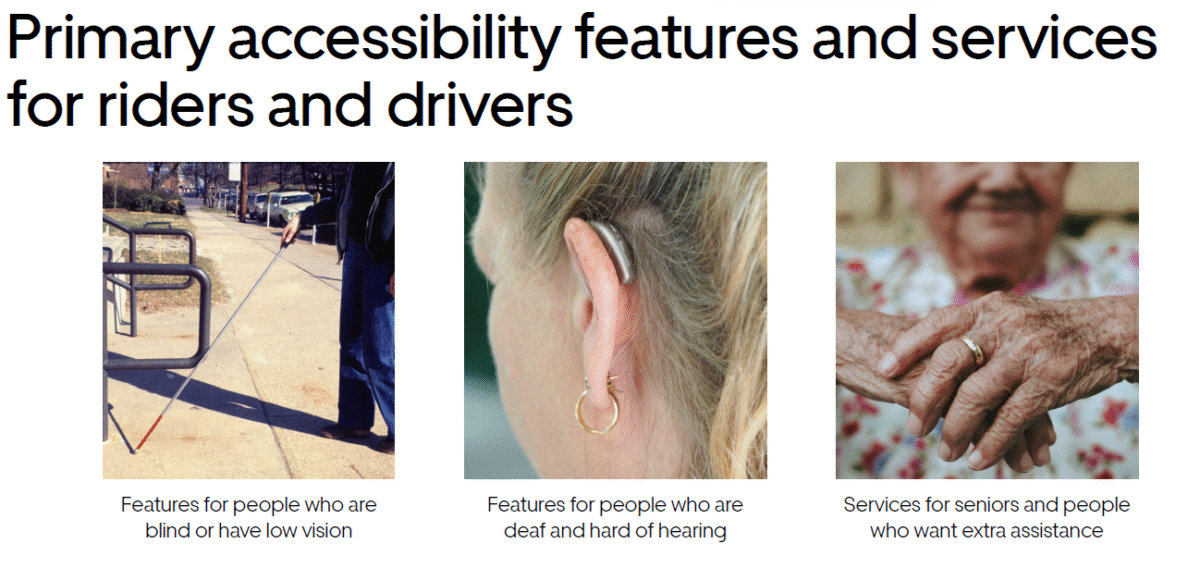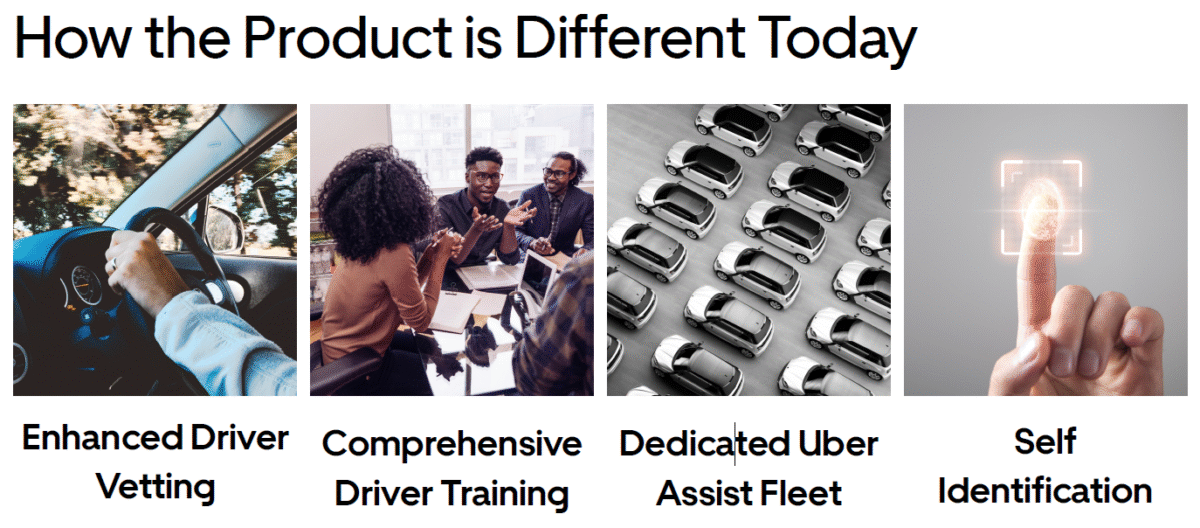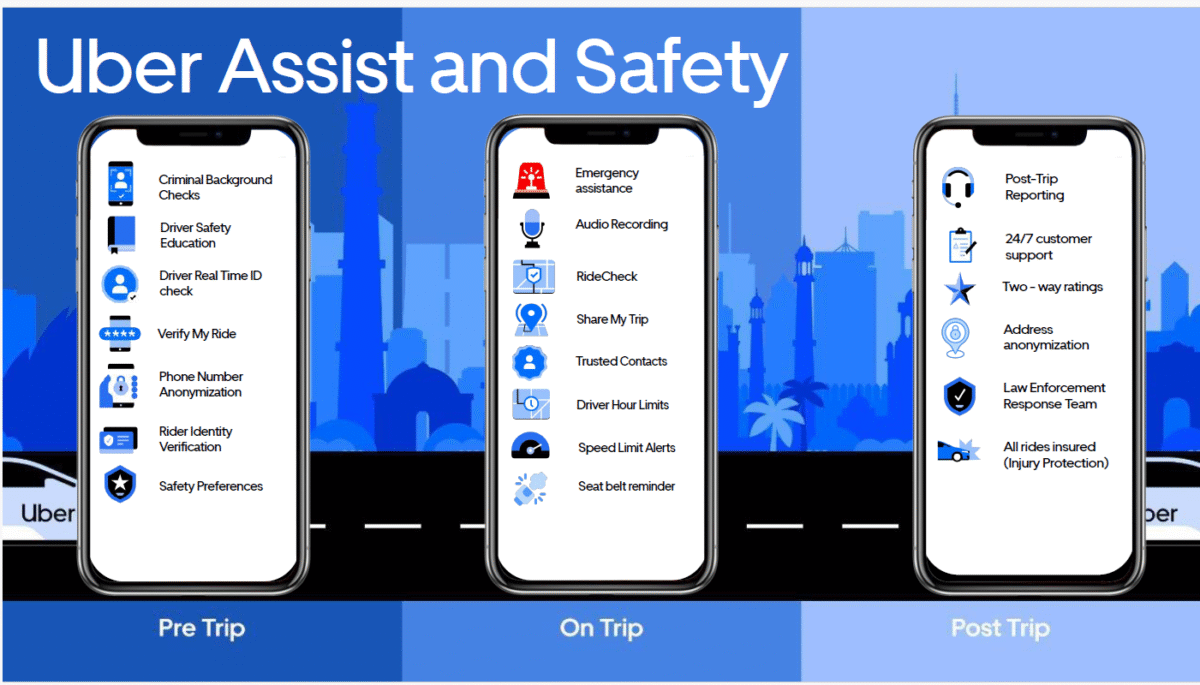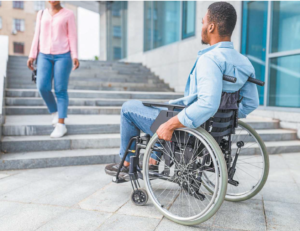
The new products have a dedicated Uber Assist Fleet
Enhanced Uber Assist service relaunched with comprehensive disability inclusion features and strategic partnerships.
By Simon Manda
JOHANNESBURG, SOUTH AFRICA – 23 July 2025 – Uber has officially launched its groundbreaking “Reimagining Mobility” initiative at a landmark event held in Johannesburg on Wednesday, fundamentally transforming accessible transport provision across South Africa through an enhanced Uber Assist service designed to eliminate systemic barriers facing persons with disabilities.
The comprehensive program addresses critical mobility challenges affecting over 2.8 million South Africans who encounter daily transportation barriers while serving the broader global disability community of over 1 billion people. This evidence-based approach demonstrates Uber’s commitment to substantive equality and universal design principles, challenging deficit-based thinking through the implementation of innovative social models.

Enhanced Service Framework
The reimagined Uber Assist surpasses traditional accessibility models by introducing a comprehensive support ecosystem. Key innovations include enhanced driver vetting protocols, comprehensive disability awareness training, dedicated vehicle fleets, self-identification options for riders, and specialised customer service infrastructure designed to address diverse capability spectrums.
“Today marks a defining moment in how we approach transport in South Africa, not just with technology, but with empathy,” stated Deepesh Thomas, General Manager for Sub-Saharan Africa at Uber. “We’re setting the stage for a mobility system that works for everyone, including the 7.5% of South Africans with disabilities. Mobility is independence. Mobility is freedom.”
The service incorporates targeted features that address diverse accessibility requirements, including support for blind and low-vision users, accommodations for deaf and hard-of-hearing passengers, and enhanced assistance for seniors and individuals requiring additional mobility support, demonstrating comprehensive contextual adaptability.

Strategic Training Partnership
Central to the initiative is a pioneering partnership with Shonaquip Social Enterprises, addressing inclusion within the transport sector through comprehensive driver education programs. The collaboration focuses on perception transformation, practical assistance skills, and emergency response protocols, establishing evidence-based accommodation strategies.
“Our vision is a world designed for everyone,” explained Caren Pretorius from Shonaquip Social Enterprises. “We can’t do it alone—we need strong, dedicated partnerships to push the vision forward. We need to train drivers because they’re the ones who make that vision real.”
The training framework encompasses disability awareness micro-courses, social model education, wheelchair assistance protocols, service animal accommodation guidelines, and alternative communication strategies, ensuring drivers develop competencies aligned with evidence-based best practices and intersectional policy development principles.
Government Support and Policy Alignment
Deputy Minister Steve Letsike of the Department of Women, Youth, and Persons with Disabilities provided robust support through a prerecorded video message, introduced by Phuti Mabelebele, Chief Director of Advocacy and Mainstreaming for Rights of Persons with Disabilities.
“Transport is not merely about moving from one location to another; it also serves as a crucial social indicator that promotes unity, inclusion, career opportunities, health care access, and participation in social life,” stated Deputy Minister Letsike. Accessible transport effectively excludes many people, particularly those with disabilities, from society. A truly inclusive transport system must also be safer—safety must be built into technology, into training, into routine planning, and accountability mechanisms.”
The initiative aligns with South Africa’s constitutional commitments and the UN Convention on the Rights of Persons with Disabilities, demonstrating coordinated effort between private sector innovation and government policy frameworks whilst promoting substantive equality approaches.
Comprehensive Safety Infrastructure
The enhanced service maintains Uber’s comprehensive safety protocols whilst implementing disability-specific considerations. Features include real-time identity verification, emergency assistance protocols, audio recording capabilities, and specialised customer support channels designed to address the unique safety requirements of persons with disabilities, establishing a continuous learning infrastructure.

Multi-Stakeholder Engagement and Diverse Representation
A distinguished panel discussion featured Briana Gilmore, Head of Global Accessibility Policy (Uber), Tebello Khatiti from Deaf Empowerment, award-winning social tech innovator and disability inclusion strategist Tarryn Tomlinson, and Dr. Ashley Subia from the South African National Council for the Blind, providing diverse perspectives on accessible mobility transformation and challenging predominant medical model perspectives.
“What does it take to make assistive technology not just available but meaningful? It needs to be accompanied by comprehensive support systems and universal design principles. We must challenge persistent misconceptions that assume persons with disabilities aren’t using technology because they don’t want to. Suppose we’re truly going to fix accessible technology. In that case, we need to invert our assumptions about supply and demand—we can’t gauge demand for products when access isn’t there in the first place,” Gilmore pointed out.
The launch event received significant representation from disability rights organisations, demonstrating the breadth of South Africa’s disability advocacy landscape. Participating organisations included Deaf Empowerment, specialising in deaf community empowerment and sign language advocacy; the South African National Council for the Blind (SANCB), providing comprehensive support services for blind and visually impaired individuals; the National Council for Persons with Disabilities (NCPD), offering cross-disability representation and policy advocacy; the Guide Dog Association, facilitating mobility independence through guide dog partnerships; and Blind SA, promoting comprehensive visual impairment support services.
Evidence-Based Impact Metrics
Research data reveals substantial transformation potential: 43.8% of Uber Assist riders were previously transported by family or friends, whereas 79.7% of users requested trips independently, demonstrating enhanced autonomy and reduced dependency on informal support networks. These statistics underscore the vital role of contextual adaptability in promoting genuine professional and social engagement.
Thomas emphasised the collaborative nature of the initiative: “Inclusive mobility isn’t Uber’s story alone; it’s a national story. We’re calling on NGOs, tech builders, policymakers, and community champions to co-create with us, and let’s make accessible travel the standard, not the exception.”
The “Reimagining Mobility” initiative represents a paradigmatic shift towards systemic inclusion, challenging deficit-based approaches while promoting comprehensive accessibility infrastructure that recognises mobility as a fundamental human right, rather than a privilege. This initiative establishes protocols for identifying barriers and implementing supportive transition mechanisms.
About Uber Assist
Initially launched in Cape Town in April 2017, Uber Assist has since expanded to Johannesburg and Pretoria, offering enhanced accessibility features across South Africa’s major metropolitan areas through a comprehensive support ecosystem design.






